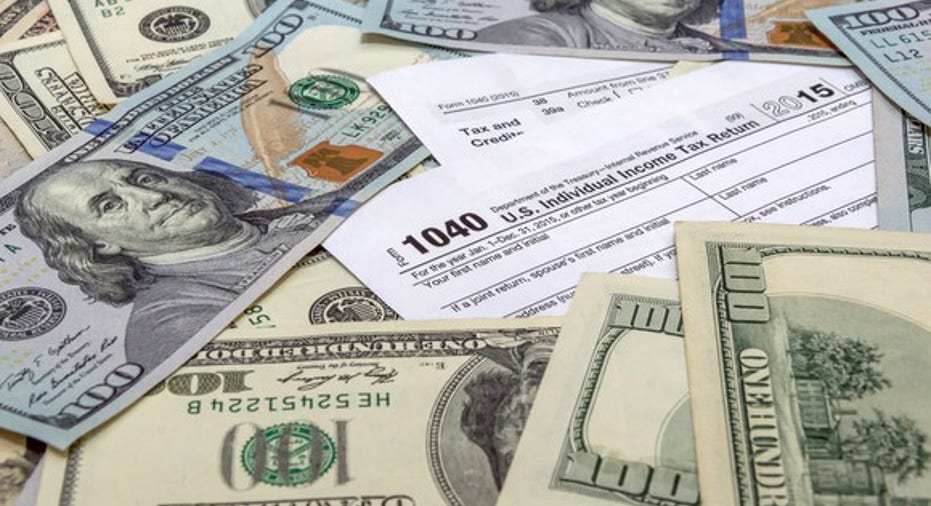7 Important Tax Dates in 2017

Image Source: Getty Images.
The 2017 tax season, during which you'll file your 2016 tax return, is right around the corner. There are a few important dates you should know, such as the deadlines for submitting or modifying your tax return, as well as some dates that let you know when to expect your tax documents, refunds, and more. Here's when seven of the most important tax dates fall for 2017.
The regular tax deadline
In most years, the regular tax deadline is April 15. However, in 2017, April 15 falls on a Saturday, and the following Monday is an official Washington, D.C. holiday known as Emancipation Day. So the deadline to submit your 2016 tax return, or file an extension, is Tuesday, April 18, 2017.
If you are submitting your return online, it must be completed and submitted to the IRS (but not yet accepted) by this date. If you are mailing a paper tax return, it must be postmarked by this date.
The extended tax deadline
Anyone can file for an automatic six-month extension with a simple form, which must be submitted to the IRS before the regular tax deadline. Doing so will give you an extra six months to prepare and submit your tax return. For the 2016 tax year, the extended tax deadline falls on Oct. 17, 2017.
It's important to note that an extension gives you more time to submit your return -- not more time to pay any balance you owe. If you owe the IRS money, it still must be paid by the regular tax deadline, or else interest and penalties may be assessed. When submitting your extension, you should also send the IRS the estimated amount you'll owe.
Amended return deadline
Technically the deadline for an amended return isn't in 2017, but it's still important to know. If you need to make a change to your tax return after you've submitted it -- maybe you received a tax document late or just found some new documentation that could increase your refund -- you'll need to submit an amended tax return.
The deadline to submit an amended tax return is three years after you submitted the original return, so most people will have until April 18, 2020 to get theirs in.
Deadline if you want a refund
If you are entitled to a refund, the IRS is happy to keep your money for as long as you'll let them. So the onus is on you to to claim your refund.
In order to claim a refund, you must meet the amended tax return deadline, whether you're amending an existing return or filing for the first time. You have until three years after the regular tax deadline to claim your refund, or else it becomes a "donation" to the IRS. For the 2016 tax year, this means you have until April 15, 2020 to claim any money owed to you.
Note: If you don't owe the IRS any money -- for example, if you have no income to report -- then in practice, the deadlines above don't apply to you.
When should you receive your tax documents?
Most of your important tax documents are required to be mailed by Jan. 31, 2017. This includes Forms W-2 and 1099, as well as documents involving bank interest and retirement account distributions. One exception is Form 1099-B, which comes from your financial institution to document sales of stocks, bonds, or mutual funds through a brokerage account, as well as Form 1099-S for real estate transaction and some Form 1099-MISCs. These don't have to be mailed until Feb. 15, 2017.
When can you file your tax return?
Technically speaking, you can file your tax return as soon as you're ready to do so in January. If you receive all your necessary documentation during the first few days of January (unlikely), you can go ahead and submit your return. Just be aware that the IRS doesn't begin processing returns until mid to late January.
When will you get your refund?
This isn't a specific date, as it depends on when you file your return and certain deductions or credits you may or may not have claimed, but it's nice to know when you can expect your tax refund to be issued. The short answer is that the IRS processes refunds once a week, and most tax refunds are received within 21 days of when the return is submitted.
For the 2016 tax year, households that file early and claim either the earned income tax credit (EITC) or the additional child tax credit won't get their refunds until after Feb. 15, a delay that will only affect this group of taxpayers.
You can check the status of your refund after the IRS accepts your tax return by using the "Where's My Refund?" tool on the IRS' website. Once your refund is approved, you'll be able to see the exact date you should expect to receive your refund.
The $15,834 Social Security bonus most retirees completely overlook If you're like most Americans, you're a few years (or more) behind on your retirement savings. But a handful of little-known "Social Security secrets" could help ensure a boost in your retirement income. For example: one easy trick could pay you as much as $15,834 more... each year! Once you learn how to maximize your Social Security benefits, we think you could retire confidently with the peace of mind we're all after.Simply click here to discover how to learn more about these strategies.
Try any of our Foolish newsletter services free for 30 days. We Fools may not all hold the same opinions, but we all believe that considering a diverse range of insights makes us better investors. The Motley Fool has a disclosure policy.



















